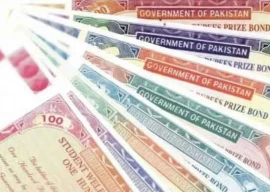
Pakistan is once again gaining the attention of foreign media - and for negative reasons. This time foreign media is accusing the Pakistani government of media strangulation. Pakistan Federal Union of Journalists (PFUJ) has called on overseas Pakistanis to protest globally against the Prevention of Electronic Crimes (PECA) (Amendment) Bill 2025 and the Digital Nation Pakistan Bill 2024.
Media rights organisations claim that the PECA (Amendment) Bill 2025 and the Digital Nation Pakistan Bill 2024 would be the last nail in the coffin of an already dead media. Yes, I also believe that media in Pakistan is dead because what is being produced and provided to consumers could be anything but journalistic content. Wishes of anchors are portrayed as news, allegations are called facts, insulting anybody is considered professionalism, and hatemongering against the state is called a valid accountability measure against state institutions. How could media survive in these circumstances that have led the journalistic scene in Pakistan over the last 20 years?
As a researcher in the field of Communication Philosophy, I have consistently called out the hybrid media-persons who are ruling TV screens and Op-Ed pages for not having any background in media studies and thus not following media ethics. Placing three cameras in studios inviting four guests free of cost and producing an hour-long show every hour between 7pm and 10pm is a lucrative business, with 'the more the slurs, the more the rating' being the mantra. Political parties use the same hybrid journalists against each other as soon as they come into power in this so-called democratic electoral process. That has been the Pakistani media scene for the last 20 years.
Media rights organisations never reprimand absurd media-persons for their unethical media practices and now the same organisations have suddenly joined hands to protect media rights from this monster of their own creation. Does only media have the right to dignity and self-preservation in Pakistan? What about the politicians, judges, civil servants, and military officials who have been abused, insulted and defamed under the pretence of true journalism? Has any other media rights organisation ever taken any action against any media-person spreading unverified defamatory material against government employees, politicians, and state institutions as a household journalistic practice? Are we aware of the damage caused by these decades of unchecked, unverified fearmongering that they pass as journalism in Pakistan?
Amidst all these malpractices, there might still be hope for ethical journalistic practices in Pakistan, for there are those that still follow media ethics where news gathering and reporting still follow the rule of accuracy, objectivity, and transparency; where editing and production of paper still go through professional editors who protect the privacy of others, get consent if mentioning someone as an official source, follow rule of balance and diversity when deciding which stories to run and how to present them. They avoid spreading verificatory content and only share verifiable content with their consumers taking the foremost responsibility to keep this content credible, unbiased, and reliable.
My experience in Europe over the last 12 years has taught me one vital rule - communication must not have any factor of insult and defamation of anybody around you. In Europe, you cannot get away with insulting anybody or defaming any individual or institution. Insult and defamation are criminal acts all over Europe. In Pakistan, insult is not considered a crime, and defaming anybody has become the only tool in the toolbox of media-persons. If the PECA Act can ensure that nobody can get away with abusing, insulting and defaming any individual in mainstream media and social media then what is the harm in it? It will just put some extra financial burden on media houses to train their employees and teach them media ethics and media laws because 'a free-for-all free fall' cannot be the answer anymore.



















COMMENTS
Comments are moderated and generally will be posted if they are on-topic and not abusive.
For more information, please see our Comments FAQ